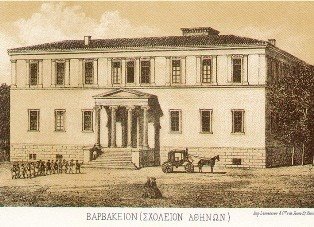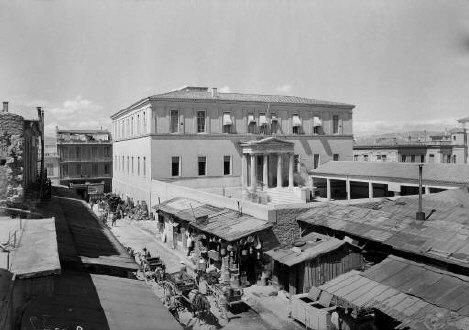CELEBRATION OF THE GREEK INDEPENDENCE DAY AND THE FEAST OF ANNUNCIATION
This year's event combined a commemorative educational happening, dances performed by the Olympian dancers and a greeting by his Eminence Metropolitan Isaiah of Denver and a greeting from the Consul General of Greece Mr. Papanikolaou. State Representative of District 25, Honorable Dennis Bonnen sent us a copy of the House resolution recognizing March 25th 2015 as the Greek Independence Day. A unique contribution for the success of this event was offered by the multi-talented Choir of the Annunciation Hellenic Orthodox Cathedral who not only masterfully sang the national anthems of Greece and of the USA but also participated in the inspiring reading of various excerpts from memoirs and speeches of key figures of the Greek War of Independence.
You can watch the video of entire event in the YouTube channel of a new Houstonian, Mr. Elias Neofytides
Excerpts from memoirs and speeches recited in the event
(Reader: Jim Verges)
On December 3rd, 1822, US president James Monroe in his annual address to Congress said: "A strong hope is entertained that the Greeks will recover their independence and assume their equal statue among the nations of the earth." Unfortunately, on December 2nd, 1823, president Monroe announced the "Monroe Doctrine", which in essence excluded the United States from getting involved in European affairs and considered the then existing European governments as "de facto legitimate." On December 8th, 1823, Congressman Daniel Webster, from Massachusetts, a famous orator of his time made a motion in Congress for the appropriation of money, to send an American envoy to Greece and for the support of the Greek struggle for independence.
On January 19th, 1824, Webster gave a powerful, long and resonating speech in defense of his proposal where he stated:
“…Sir, they have done much. It would be great injustice to compare their
achievements with our own. We began our Revolution, already possessed of
government, and, comparatively, of civil liberty. Our ancestors had from
the first been accustomed in a great measure to govern themselves.
They had little else to do than to throw off the paramount
authority of the parent state. Enough was still left, both of law and of
organization, to conduct society in its accustomed course, and to unite
men together for a common object. The Greeks, of course, could act with
little concert at the beginning; they were unaccustomed to the exercise
of power, without experience, with limited knowledge, without aid, and
surrounded by nations which, whatever claims the Greeks might seem to
have upon them, have afforded them nothing but discouragement and
reproach. They have held out, however, for three campaigns; and that, at
least, is something. Constantinople and the northern provinces have sent
forth thousands of troops;--they have been defeated. Tripoli, and
Algiers, and Egypt, have contributed their marine contingents;--they
have not kept the ocean. Hordes of Tartars have crossed the
Bosphorus;--they have died where the Persians died. The powerful
monarchies in the neighborhood have denounced their cause, and
admonished them to abandon it and submit to their fate. They have
answered them, that, although two hundred thousand of their countrymen
have offered up their lives, there yet remain lives to offer; and that
it is the determination of all, "yes, of ALL," to persevere until they
shall have established their liberty, or until the power of their
oppressors shall have relieved them from the burden of existence.
It may now be asked, perhaps, whether the expression of our own
sympathy, and that of the country, may do them good? I hope it may. It
may give them courage and spirit, it may assure them of public regard,
teach them that they are not wholly forgotten by the civilized world,
and inspire them with constancy in the pursuit of their great end. At
any rate, Sir, it appears to me that the measure which I have proposed
is due to our own character, and called for by our own duty. When we
shall have discharged that duty, we may leave the rest to the
disposition of Providence….”
(Greek reader: Nina Peropoulou, English reader: Alex Kanakis)
Exert from the Speech of Theodoros Kolokotronis to the students of the Athens high school, 1827
Όταν αποφασίσαμε να κάμωμε την Επανάσταση, δεν εσυλλογισθήκαμε ούτε πόσοι είμεθα ούτε πως δεν έχομε άρματα ούτε ότι οι Τούρκοι εβαστούσαν τα κάστρα και τας πόλεις ούτε κανένας φρόνιμος μας είπε «πού πάτε εδώ να πολεμήσετε με σιταροκάραβα βατσέλα», αλλά ως μία βροχή έπεσε εις όλους μας η επιθυμία της ελευθερίας μας, και όλοι, και ο κλήρος μας και οι προεστοί και οι καπεταναίοι και οι πεπαιδευμένοι και οι έμποροι, μικροί και μεγάλοι, όλοι εσυμφωνήσαμε εις αυτό το σκοπό και εκάμαμε την Επανάσταση.
Excerpt from the Speech of Theodoros Kolokotronis to the students of the Athens high school, 1827
We did not consider the disparity in the numbers, nor or the lack of munitions, nor the tactical advantages of the Ottoman when we decided to take up the arms against them and none of us questioned the feasibility of our initiative. The entire people reacted as if they all had a single will to free ourselves from the Turks. All of us, the educated people of the country, the ship owners, the elders, the clergy, the merchants and the leaders of the militias, all of us were united in the scope of the revolution.
Λόγος Παλαιών Πατρών Γερμανού. Sermon of Bishop Germanos of Patras calling the people of Peloponnese to revolt. (Greek reader: Manos Papadakis, English reader: Alex Kanakis)
«Πολυαγαπημένοι μας ἀδελφοί, ὁ Κύριος, σᾶς ἀναγγέλλει διὰ τοῦ στόματός μου τὸ τέλος τῶν ἡμερῶν τῶν δακρύων καὶ τῶνδοκιμασιῶν. Ἡ φωνή Του εἶπε ὅτι θὰ εἶσθε ὁ στέφανος τὸν κάλλους Του καὶ τὸ διάδημα τῆς Βασιλείας Του. Ἡ φυλὴ τῶν Τούρκων ὑπερέβη τὸ μέτρον τῶν ἀνομιῶν, ἡ ὥρα τὸν καθαρμοῦ ἔφθασε. Νὰ εἶσθε, λοιπόν, ἀγαπημένοι, ὦ γένος τῶν Ἑλλήνων, φυλὴ Ἑλληνική, δύο φορὲς δοξασμένοι ἀπὸ τοὺς Πατέρες σας, ὁπλισθῆτε μὲ τὸν ζῆλον τοῦ Θεοῦ, ἕκαστος ἐξ ὑμῶν ἂς ζωσθῇ τὴν ῥομφαῖαν του, διότι εἶναι προτιμώτερον νὰ ἀποθάνῃ τις μὲ τὰ ὅπλα ἀνὰ χεῖρας, παρὰ νὰ καταισχύνῃ τὰ ἱερὰ τῆς Πίστεώς του καὶ τὴν Πατρίδα του. Ἐμπρὸς λοιπὸν «διαρρήξωμεν τοὺς δεσμοὺς αὐτῶν καὶ ἀπορρίψωμεν ἀφ᾿ ἡμῶν τὸν ζυγὸν αὐτῶν» διότι εἴμεθα οἱ κληρονόμοι τοῦ Θεοῦ καὶ οἱ συγκληρονόμοι τοῦ Ἰησοῦ Χριστοῦ.
Brethren, our Lord, on behalf of Whom I’m speaking to you today, has deemed that the days of your misery will end. His voice commands that you are the crown of His kingdom. Turkish crimes against us have reached immense proportions. The time of justice has come. Be united and love each other, you the tribe of the Greeks you are twice more glorified as than your predecessors. Be the zealots of God, armed with the Archangels sword and fight the enemy; for it is better for one to die fighting rather than betraying his country and his Lord. Let us now break the shackles of enslavement because we are bequeathed the Kingdom of our Lord Jesus Christ.
Οἱ ἄλλοι, καὶ ὄχι ἡμεῖς οἱ ἱερωμένοι θὰ σᾶςὁμιλήσουν διὰ τὴν δόξαν τῶν προγόνων σας. Ἐγὼ ὅμως θὰ σᾶς ἐπαναλάβω τὸ ὄνομα τοῦ Θεοῦ, πρὸς τὸν Ὁποῖονὀφείλομεν ἀγάπην ἰσχυροτέραν καὶ ἀπὸ τὸν θάνατον.
Αὔριον, ἀκολουθοῦντες τὸν Σταυρόν, θὰ βαδίσωμεν πρὸς αὐτὴν τὴνπόλιν τῶν Πατρῶν. Ὁ Κύριος θὰ ἑκατονταπλασιάσῃ τὸ θάρρος σας. Ἵνα δὲ προστεθοῦν εἰς ὑμᾶς αἱ ἀναγκαῖαι διὰ νὰ ἀναζωογονηθῆτε δυνάμεις, σᾶς ἀπαλλάσσω ἀπὸ τὴν νηστείαν τῆς Τεσσαρακοστῆς, τὴν ὁποίαν τηροῦμεν. Στρατιῶται τοῦ Σταυροῦ, ὅτι καλεῖσθε νὰ ὑπερασπισθῆτε, εἶναι αὐτὸ τοῦτο τὸ θέλημα τοῦ Οὐρανοῦ. Εἰς τὸ ὄνομα τοῦ Πατρὸς καὶ τοῦ Υἱοῦ καὶ τοῦ Ἁγίου Πνεύματος νὰ εἶσθε εὐλογημένοι καὶ συγκεχωρημένοι ἀπὸ πάσας τὰς ἁμαρτίας σας».
Others, we the clergy, who are better educated than us, the clergy, will speak to you about the glory of your ancestors. But I will remind you, that God is to whom we owe the ultimate love which makes even death to be unimportant. Tomorrow lined up behind the cross we will march to the city of Patras. Our Lord will multiply your strength and your courage. However, bodily strength is necessary and to get that I absolve you from the sin of not keeping the lent. You’re the army of God because you’re defending what our heavenly father commands. In the name of the Father and the Son and of the Holy Spirit, be blessed and be absolved of all of your sins.
An excerpt from the most widely known patriotic poem in the years before the revolution. Θούριος Ρήγα Φερραίου (Reader: Nina Peropolou)
Ώς πότε παλικάρια να ζούμεν στα στενά,
Mονάχοι σα λιοντάρια, σταις ράχαις στα βουνά;
Σπηλαίς να κατοικούμεν, να βλέπωμεν κλαδιά,
Nα φεύγωμ' απ' τον Kόσμον, για την πικρή σκλαβιά.
Nα χάνωμεν αδέλφια, Πατρίδα, και Γονείς,
Tους φίλους, τα παιδιά μας, κι' όλους τους συγγενείς.
Καλλιώναι μίας ώρας ελεύθερη ζωή,
Παρά σαράντα χρόνοι σκλαβιά, και φυλακή.
Τισ' ωφελεί κι αν ζήσης, και είσαι στη σκλαβιά,
Alexander Ipsilantis proclamation calling the Greeks to claim their freedom and human rights. (Greek reader: Alex Kalamaridis, English reader: Jim Verges)
Η ώρα ήλθεν, ωΆνδρεςΈλληνες!Οι αδελφοί μας και φίλοι είναι πανταχού έτοιμοι, οι Σέρβοι, οι Σουλιώται, και όλη η Ηπειρος, οπλοφορούντες μας περιμένωσιν· ας ενωθώμεν λοιπόν με Ενθουσιασμόν! η Πατρίς μάς προσκαλεί!
Greeks the time has come. Our brethren and our friends are everywhere ready: the Serbs, the people of Souli, and all around Epirus, are armed and waiting for us. Our country callsustotakeupourarms.
Ποίος λοιπόν εμποδίζει τους ανδρικούς σας Βραχίονας; ο άνανδρος εχθρός μας είναι ασθενής και αδύνατος. Οι στρατηγοί μας έμπειροι και όλοι οι ομογενείς γέμουσιν ενθουσιασμού! ενωθήτε λοιπόν, ω ανδρείοι και μεγαλόψυχοι Έλληνες! ας σχηματισθώσι φάλαγκες εθνικαί, ας εμφανισθώσι Πατριωτικαί λεγεώνες, και θέλετε ιδή τους παλαιούς εκείνους Κολοσσούς του δεσποτισμού να πέσωσιν εξ ιδίων, απέναντι των θριαμβευτικών μας Σημαίων! Εις την φωνήν της Σάλπιγκός μας όλα τα παράλια του Ιωνίου και Αιγαιου πελάγους θέλουσιν αντηχήση· τα Ελληνικά πλοία, τα οποία εν καιρώ ειρήνης ήξεραν να εμπορεύωνται, και να πολεμώσι, θέλουσι σπείρη εις όλους τους λιμένας του τυράννου με το πυρ και την μάχαιραν, την φρίκην και τον θάνατον…
There is no one who can stop the fury of your strong bodies in defense of your country. Your unmanly enemy is weak and hesitant. Our generals are seasoned, the Greeks around the globe are rejoiced. Come and join our ranks and you will see our armies grow and smash the Ottomans and destroy the old giant pillars of despotism. Our call will be heralded across the Ionian and the Aegean Sea. Greek ships, which were crossing the oceans in the time of peace, will now become a formidable force which will annihilate the enemy in any port.
Είναι καιρός να αποτινάξωμεν τον αφόρητον τούτον Ζυγόν, να ελευθερώσωμεν την Πατρίδα, να κρημνίσωμεν από τα νέφη την ημισέληνον να υψώσωμεν το σημείον, δι’ ου πάντοτε νικώμεν! λέγω τον Σταυρόν, και ούτω να εκδικήσωμεν την Πατρίδα, και την Ορθόδοξον ημών Πίστιν από την ασεβή των ασεβών Καταφρόνησιν.
Μεταξύ ημών ευγενέστερος είναι, όστις ανδρειοτέρως υπερασπισθή τα δίκαια της Πατρίδος, και ωφελιμοτέρως όστις την δουλεύση. Το έθνος συναθροιζόμενον θέλει εκλέξη τους Δημογέροντάς του, και εις την ύψιστον ταύτην Βουλήν θέλουσιν υπείκει όλαι μας αι πράξεις.
The time to free up our country has come. The time to remove the crescent and raise the cross has come. The time to avenge our country and our faith has come. The noblest among us will be those who will gallantly fight for our nation. The most useful among us will be the one who will minister the functions of our new state. All of us should democratically elect deputies, and bestow upon them the right and power to govern all of our acts.
Ας κινηθώμεν λοιπόν μέ εν κοινόν φρόνιμα, oι πλούσιοι ας καταβάλωσιν μέρος της ιδίας περιουσίας, oι ιερoί ποιμένες ας εμψυχώσωσι τον λαόν με το ίδιόν των παράδειγμα, και oι πεπαιδευμένοι ας συμβουλεύσωσιν τα ωφέλιμα. Ας καλέσωμεν λοιπόν εκ νέου, ω Ανδρείοι και μεγαλόψυχοι Έλληνες, την ελευθερίαν εις την κλασικήν γην της Ελλάδος! Ας συγκροτήσωμεν μάχην μεταξύ του Μαραθώνος και των Θερμοπυλών!Εις τα όπλα λοιπόν φίλοι η Πατρίς Μάς Προσκαλεί!
Αλέξανδρος Υψηλάντης
Την 24ην Φεβρεαρίου 1821 Εις το γενικόν στρατόπεδον του Ιασίου
Let us all fight united under the single common cause, to free our country; let the rich contribute their wealth to this cause their wealth; let the clergy strengthen the spirit of the people and lead by example, and let our intellectuals advise us on what is best for our nation. And now, let all of us proclaim that freedom once again rules on the ancient land of Greece. Let us fight in Marathon and Thermopylae as our forefathers did. Take up your arms as our country commands us.
Written by General Alexander Ypsilantis at his encampment, at the City of Iasi, in present day Romania, February 24, 1821.
(Greek reader: Thanassis Vassilakidis, English reader: Alex Kanakis)
Φεβρουάριος 1821.Στο ελληνικό σχολείο του Βουκουρεστίου η ατμόσφαιρα είναι ηλεκτρισμένη. Η είδηση για την κήρυξη της επαναστάσεως στη Μολδοβλαχία με αρχηγό τονΑλέξανδρο Υψηλάντη προκαλεί σε μικρούς και μεγάλους πατριωτική έξαρση και ασυγκράτητο ενθουσιασμό.Γι’ αυτήν την ώρα το πρόγραμμα του σχολείου γράφει Αρχαία Ελληνικά κι ο καθηγητήςΓεώργιος Γεννάδιος, ένας φημισμένος διδάσκαλος και φλογερός έλληνας πατριώτηςαρχίζει να διδάσκει τον Πανηγυρικό του Ισοκράτη. Κάποια στιγμή όμως σταματά. Η συγκίνησή του δεν του επιτρέπει να συνεχίσει το μάθημα. Με μια απερίγραπτη ζέση ψυχής αφηγείται τη δόξα της Ελλάδας. Τα μάτια του έχουν βουρκώσει. Οι μαθητές ξεσπούν σε χειροκροτήματα. Τότε ο φωτισμένος δάσκαλος στρέφεται προς τους μαθητές του και με τόνο επιβλητικό τους απευθύνει το ηρωικό κάλεσμα:
February 1821. Everyone in the Greek high school in Bucharest is nervous. Alexander Ypsilanti has proclaimed the beginning of the revolution against the Ottomans at a location near the Russian borders. The acclaimed high school’s teacher of ancient Greek George Gennadios enters a classroom full of senior students in order to start a lecture on one of Isocrates’ speeches. He starts, but soon his voice starts breaking up. Instead of his planned lecture, he speaks about the past glory of Greece frequently interrupted by his students’ ovations. With his eyes full of tears he delivers a final command to his students:
«Παιδιά μου, ήλθε η ώρα να δείξετε προς τον κόσμο, ο οποίος σας κοιτάζει, και προς την πατrίδα, η οποία ελπίζει από σας, ότι είστε γνήσια τέκνα της! Ήλθε η ώρα να δείξετε την ευγνωμοσύνη σας προς την Πατρίδα, η οποία σας γέννησε, και να προσφέρετε τη ζωή σας υπέρ αυτής.
Η Πατρίδα, αφού σας έδωσε τη ζωή, τώρα σας προτείνει την αθανασία. Πρόγονοι και πατέρες τριών χιλιάδων χρόνων, ήρωες, μάρτυρες, σοφοί, στρατηλάτες σας κοιτάζουν από τον ουρανό για να δουν αν θα φανείτε άξιοι αυτών και της Πατρίδος. Των Θερμοπυλών, του Μαραθώνος, της Σαλαμίνος και των Πλαταιών οι ψυχές σας νεύουν και σας ενθαρρύνουν.Του Ιερού Λόχου των Θηβών οι αδελφοί σας σας φωνάζουν: Μη μας ατιμάσετε! Μιμηθείτε μας!Τεσσάρων αιώνων τουρκοκρατίας ήρωες και μάρτυρες, η αθάνατη κλεφτουριά, ιεράρχες, άρχοντες, προεστοί, διδάσκαλοι, ναυτικοί σας φωνάζουν: Μάχεσθευπέρ Πίστεως και Πατρίδος!Των αρχαίων Αθηνών οι νέοι σας προσκαλούν να ορκισθείτε τον όρκο εκείνων. Γονατίστεκαιορκισθείτε!».
The country in which you are born is now showing you the path to immortality. Our forefathers our ancestors, our heroes and martyrs, the wise people of our country, our generals who once led victorious armies, all of them look upon you from the heavens. They are waiting to see if you can prove yourselves to be as brave as the fighters in Marathon and in Salamis. Your brethren of the Theban Sacred Corps who were as young as you are now when they all perished in defense of the country cry to you: do not disgrace us, but follow our lead. Our nation’s martyrs, the rebels who fought the Turks, the elders, the clergy, your teachers, our glorious seamen all of them cry out to you: fight for your faith and your country. The unseen Athenian youth cry out to you: Kneel and take our sacred oath.
(Greek reader: Alex Kalamarides, English reader: Jim Verges)
Last but not least, we close with two excerpts from General Makrygiannis’ memoirs. The first is an account of the French Navy Captain Dernys who came to advise Makrygiannis to withdraw his meager forces aiming to protect Nafplion from the Egyptian missionaries commanded by Ibrahim, the son of the Pasha of Egypt, from whom the Ottoman Empire requested military assistance to suppress the Greek revolution.
Εκεί οπούφκιανα τις θέσιες εις τους Μύλους ήρθε ο Ντερνύς να με ιδεί. Μου λέγει: τι κάνεις αυτού; Αυτές οι θέσεις είναι αδύνατες, τι πόλεμο θα κάμετε με το Μπραήμη αυτού;
Του λέγω: είναι αδύνατες οι θέσεις κι εμείς, είναι δυνατός ο θεός που μας προστατεύει και θα δείξωμεν την τύχην μας σ΄αυτές τις θέσεις τις αδύνατες. Κι αν είμαστε ολίγοι εις το πλήθος του Μπραήμη, παρηγοριόμαστε μ΄έναν τρόπο ότι η τύχη μας έχει τους Έλληνες πάντοτε ολίγους. Ότι αρχή και τέλος Παλαιόθεν και ως τώρα όλα τα θηρία πολεμούν να μας φάνε και δε μπορούνε τρώνε από εμάς και μένει και μαγιά. Και οι ολίγοι αποφασίζουν να πεθάνουν κι όταν κάνουν αυτήνη την απόφαση λίγες φορές χάνουν και πολλές κερδαίνουν. Η θέση όπου είμαστε σήμερα εδώ είναι τοιαύτη και θα ιδούμε την τύχη μας οι αδύνατοι με τους δυνατούς. Τρεμπιέν (πολύκαλά) λέγεικιαναχώρησεοναύαρχος.
While I was preparing our defenses at the location of windmills outside of Argos, Admiral Dernys approached me and advised me that our defensive positions were weak and insufficient to put up any significant resistance against the Turks. I replied to him that our positions may be weak but God is strong. You will help us turn the tide at these weak defensive positions. Our only solace is that throughout our history we have always been fewer than our enemies. For hundreds of years our enemies fought against us and still we are here to fight again. Many of us die, yet there are always a few left to continue. And when sometimes the few decide to put up a fight against the many the former prevail on the latter. This is precisely our situation today. The admiral did not reply, made one step away from me and replied to me, very well.
(Greek reader: Manos Papadakis, English reader: Alex Kanakis)
[Τααγάλματα] Thetwostatues
Είχα δυο αγάλματα περίφημα, μια γυναίκα κι ένα βασιλόπουλο, ίδια φαίνονταν οι φλέβες, τόση εντέλειαν είχαν. Όταν χάλασαν τον Πόρο, τα χαν πάρει κάτι στρατιώτες, και στ΄ Άργος θα τα πωλούσαν των Ευρωπαίων χίλια τάλαρα γύρευαν .. Πήρα τους στρατιώτες, τους μίλησα: «Αυτά, και δέκα χιλιάδες τάλαρα να σας δώσουνε, να μην το καταδεχθείτε να βγουν από την πατρίδα μας. Γι΄αυτάπολεμήσαμε».
Once, I seized two beautiful statues. A female statue and the statue of a prince. They were so perfect that one could see the veins on their arms. When Poros fell in the hands of the Turks some of my soldiers carried them to Argos with the intent to sell them to some European traders. The traders promised them 1000 drachmas. I called my soldiers and spoke to them. Even if they give you 10,000 drachmas never sell those statues to them. Never allow such statues to be taken from our land for this is what we fight for.”
(ΓιάννηςΜακρυγιάννης- Απομνημονεύματα)

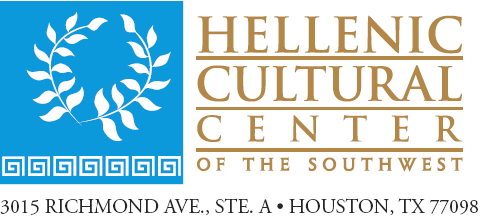
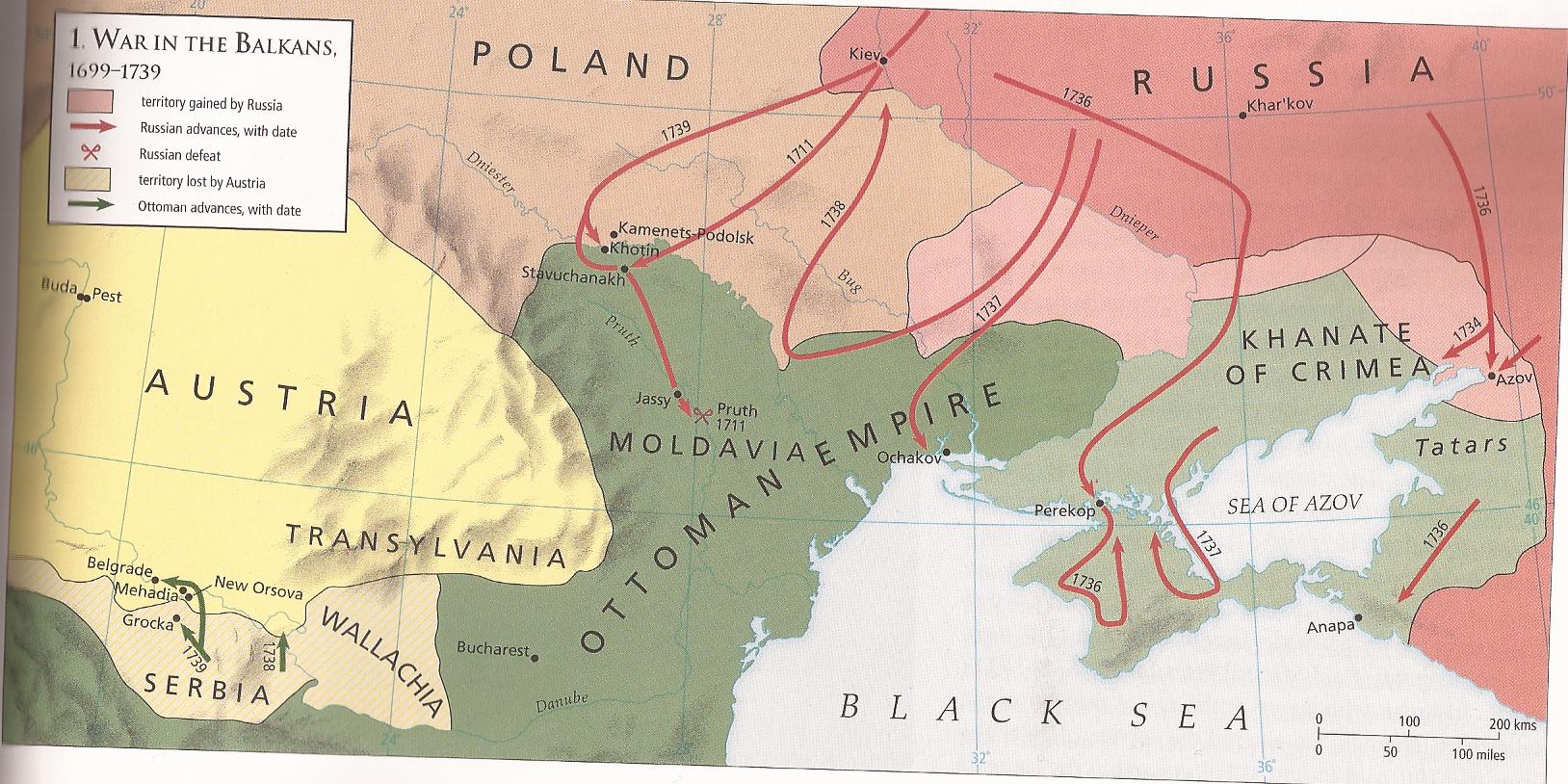
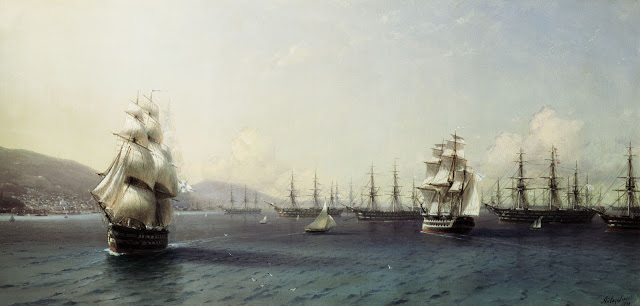
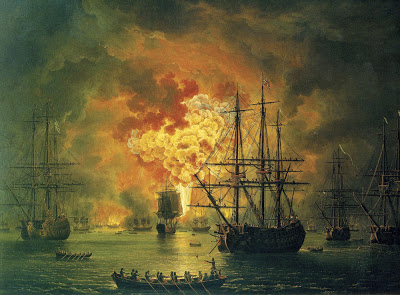 which lies east of a peninsula located to the east of the island of Chios. Admiral
which lies east of a peninsula located to the east of the island of Chios. Admiral